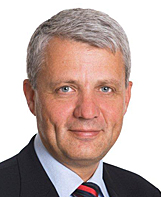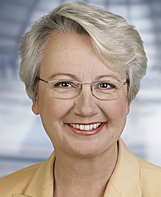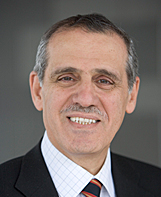Head
Newsletter No. 6
Berlin, October 13th, 2011
Headline
Summit 2011
World Health Summit 2011 | October 23rd-26th, 2011 | Berlin, Germany


World Health Summit 2011 - Program
Final Program available online!
Click here to download the booklet. Or access the online program and set your individual summit schedule online with the <link program program-2011 _blank internal-link internal link in current>Session Planer.
Speaker Update
Speaker Update
Confirmed Keynote Speakers



Dagfinn Høybråten,chair of the GAVI Alliance Board since December 2010, says “Immunisation is crucial not just because it save lives, but because it has wider social and economic benefits too“. As a representative of the Christian Democratic Party, Mr. Høybråten is also Vice President of the Norwegian Parliament and a member of Norway’s Standing committee for Foreign Affairs and Defence. He has previously served as chairman and Parliamentary leader of his party and as president of the Nordic Council. Prior to this he has held several senior positions in Norwegian Government including Minister of Health, Minister of Labour and Social Affairs and State Secretary, Ministry of Finance and a Member of the Board of Governors of Norway’s Central Bank. As a Minister Mr. Høybråten was responsible for initiating several major health and social reforms, including a new tobacco control legislation, a comprehensive Mental Health Plan and a reorganization of the welfare administration. Mr. Høybråten holds a degree in Political Science from the University of Oslo.
Dagfinn Høybråten will speak at the following sessions:
Keynote Lecture
Monday, October 24th, 2011
15.45-16.45
Panel Discussion
Bridging Health Gaps with Vaccines
Monday, October 24th, 2011
17.00-18.30
Schavan
Annette Schavan, the current minister of Education and Research, not only is a high-profile German politician but also has an outstanding academic background. In 1980, after her studies in Educational Sciences, Philosophy and Catholic Theology in Bonn and Düsseldorf, Annette Schavan obtained her doctoral (Dr. phil.) with a thesis on conscience formation. In 2009 she was awarded the title of Honorary Professor of Catholic Theology at Freie Universität Berlin and an honorary PhD from the Department of Philosophy of Cairo University and was elected member of class I (philosophy and cultural history) of the European Academy of Sciences and Arts.
Annette Schavan has been politically active for the German Christian Democratic Union (CDU) since 1975 and has held several political positions such the office as Federal manager of the CDU's women's organization Frauen-Union, the ministership of Education, Youth and Sport of Land Baden-Württemberg and the Vice-chair of the CDU. In 2005, she was appointed Minister for Science and Education by the German Federal Chancellor Angela Merkel. Since the Federal election in Germany in 2009, Annette Schavan has been serving a second term in that position.
Annette Schavan will speak at the following session:
Keynote Lecture
Tuesday, October 25th, 2011
9.00-10.00
Ala Alwan is an internationally recognized medical expert, leading the WHO’s Noncommunicable Diseases and Mental Health Cluster (NMH). As a medical doctor by training, he has experience in both clinical and academic medicine and has held important positions in public health. After obtaining his postgraduate degree in the UK, Alwan returned to Iraq, his home country, where he became Professor and Dean of the Faculty of Medicine, Mustansiriya University, Baghdad. In 1992, Alwan joined the WHO as Regional Adviser for Non-communicable Diseases in the Regional Office for the Eastern Mediterranean and subsequently directed the WHO’s departments for Non-communicable Diseases Prevention and Management. In 2001, he became WHO Representative in Jordan.
From 2003-2005, Alwan was strongly engaged in politics, holding the positions of Minister of Education and Minister of Health in the cabinet appointed by the Interim Iraq Government. Upon his return to the WHO in 2005, he became Representative of the Director-General and Assistant Director-General for Health Action in Crises. In 2008 Alwan was appointed to his current position as Director-General of the NMH.
Ala Alwan will speak at the following sessions:
Keynote Lecture
Tuesday, October 25th, 2011
15.45-16.45
Panel Discussion
Promoting Health, Preventing NCD - UN High-Level Meeting. What Comes Next?
Tuesday, October 25th, 2011
17.00-18.30
Program Highlights
Program Highlights
Working Sessions and Partner Symposia
No Health without Mental Health
Access to Health in Low-Income Countries
Four Years after the Berlin Declaration on Tuberculosis – Lessons Learnt and Future Challenges
Working Session on Oct. 25th,
10.15-11.45
Since the Lancet Series on Global Mental Health (2007), awareness has grown of the gross inequity in the provision of care and respect for human rights of persons living with mental disorders, between rich and poor countries. The treatment gap for mood disorders exceeds 75% for low and middle income countries (LMIC), while 90% or more of people with psychosis have never been treated in sub-Saharan Africa.
A key priority is scaling-up evidence-based packages of mental health care, to be delivered by non-specialists in general healthcare settings. The evidence that ‘task-shifting’ is both feasible and effective has strengthened. This has informed the WHO Mental Health Gap Action Plan Intervention Guide (mhGAP-IG), to be piloted and rolled-out in selected LMIC. Much mental disorder burden occurs in the context of health priority areas, for example maternal and child health and HIV care.
New funding initiatives provide opportunities to contribute to the design and evaluation of effective models of care - a UK DFID Research Program Consortium, and the US NIMH Collaborative Hubs for International Research on Mental Health. ‘Grand Challenges in Global Mental Health’ was launched with a priority setting exercise published in Nature in July 2011. A second Lancet Series appears in October 2011.
Chairs:
Martin Prince | Professor of Epidemiological Psychiatry | King's College London | United Kingdom
Marie R. Bashir | Governor of New South Wales | Australia
Speakers:
Pamela Collins | Director, Office for Research on Disparities and Global Mental Health | National Institute of Mental Health | United States
Atif Rahman | Professor of Child Psychiatry | University of Liverpool | United Kingdom
Soraya Seedat | Professor of Psychiatry | Stellenbosch University (Tygerberg Campus) | South Africa
Marylou Selo | President | Werner A. Selo Foundation, New York | United States
Working Session on Oct. 25th,
14.00-15.30
This Working Session aims at discussing how various financing mechanisms can contribute to address specific access to health issues in developing countries. The past decade has seen a remarkable series of public and private initiatives to support public health issues in low income countries, and in particular the creation of novel financing mechanisms such as The Global Fund, UNITAID, the Affordable Medicines Facility – malaria (AMFm), etc.
At a time when the economic crisis may put into question the continued commitment of some funders, the efficacy of financing mechanisms is an important topic of debate. In this session, speakers will address issues related with tiered-pricing, drug donations, subsidy mechanisms as well as microfinance and micro-insurance. Each of these mechanisms was designed at a specific time to address specific issues and situations. Speakers will review how each of these mechanisms can contribute to address financing gaps, and highlight their respective key success factors. This session will be an opportunity to learn from past experience, to better plan the future.
Chairs:
Philippe Douste-Blazy | Chair of the Board | UNITAID | France
Robert Sebbag | Vice President Access to Medicines | Sanofi | France
Speakers:
Robert Sebbag | Vice President Access to Medicines | Sanofi | France
Emmanuel Yuniwo Nfor | Senior Advisor, Supply Chain Management and Strategic Support | The Global Fund to Fight AIDS, Tuberculosis and Malaria | Switzerland
Thuy Huong Ha | Director Pharmaceutical Management Unit | The Global Fund to Fight AIDS, Tuberculosis and Malaria | Switzerland
Delphine Bazalgette | Country Representative | PlaNet Finance Deutschland e.V. | Germany
Jean Jannin | World Health Organization | Switzerland
Partner Symposium on Oct. 25th,
17.00-19.00
In Oct 2007, a Ministerial Forum was organized by the German Federal Ministry of Health and WHO-Euro. The health ministers discussed current challenges and problems in tuberculosis control in the WHO-Euro region and adopted the Berlin Declaration on Tuberculosis containing self-commitments and precise steps to be initiated by both high and low burden countries. It was also agreed upon evaluating progress and obstacles every two years.
Thus, in 2009 there was a tuberculosis symposium organized in the framework of the first World Health Summit, focussing on problems of HIV-TB comorbidity.
This year's evaluation symposium will focus on public health strategies of tuberculosis control and the collaboration between the partner countries in tuberculosis research and control efforts. In addition, questions of financing, organization of DOTS and interactions between major players in TB control will be discussed, namely independent NGOs, WHO and GFATM, NTPs of high priority countries and private sector partners.
Chairs:
Timo Ulrichs | Vice-President | Koch-Metschnikow-Forum | Germany
Hans Kluge | Director Div. of Health Systems and Public Health | WHO-Euro | Denmark
Speakers:
Dermot Maher | Senior Researcher | Global Fund to Fight AIDS, Tuberculosis, Malaria | Switzerland
Christopher Cooper | TB Alliance | Switzerland
Walter Haas | Head of the Respiratory Infections Unit | Robert Koch Institute | Germany
Philip Du Cros | Médecins sans Frontières | United Kingdom
Valeriu Crudu | Institute for Phthisiopulmonology, Chisinau | Moldova
Lamara Vashakidze | National Tuberculosis Institute, Tbilisi | Georgia
George Kosmiadi | Central Tuberculosis Research Institute, Moscow | Russian Federation
David Hain | Hain Lifesciences | Germany
Network
Network
PlaNet Finance Group to create a Health Mutual in Benin
The pilot of the project has been financed by Sanofi in the frame of their “Access to Medicine” strategy.
Despite a good distribution of health infrastructure, only 34% of the population in Benin has access to health care, due to lack of resources. Microentrepreneurs who borrow from microfinance institutions (MFIs), represent a poor segment of the population and often face difficulties in accessing health care. Health costs are thus financed by the loans borrowed from MFIs, which are originally intended for the implementation of income-generating activities, thereby generating a pernicious cycle of poverty since the source of income disappears. Meanwhile, MFIs see their portfolio at risk increase and their performances reduced.
PlaNet Finance entrusted PlaNet Guarantee, the microinsurance specialist of PlaNet Finance Group, to conduct a feasibility study to create a health mutual in Benin to provide health microinsurance (HMI) to microentrepreneurs and their families. The project preparation has been carried out in coordination with the International Labour Organization (ILO) as well as local MFIs in 2008 to identify the best mechanisms to offer a HMI on a large scale in Benin. The results of the study highlighted the strong need for a health mutual. Based on these findings, PlaNet Guarantee and 4 MFIs in Benin have jointly set-up an association in 2009, called Djidjoho in order to enable microentrepreneurs to have access to an interesting HMI package in Benin. This is an innovative approach in West-Africa and had never been attempted before. Djidjoho is responsible for the distribution of the HMI scheme and is partnering with an existing mutual, Mutuelle de Securite Sociale du Bénin (MSS), which manages the risk. The microinsurance product covers 70% for primary and secondary healthcare, maternity, drugs and laboratory and costs EUR 0.9 per person/per month. The insurance is on a voluntarily basis and until today, about 500 microentrepreneurs and their families are covered.
PlaNet Guarantee has been assigned by PlaNet Finance to take over the local implementation of the project by providing technical assistance to help MFIs and the mutual to adapt the microinsurance system to their structure as well as to train the MFIs’ staff and the mutual on the program’s management and promotion. Another crucial activity in the frame of this project was the execution of an awareness raising campaign on microinsurance and on the concept of mutuality, which is not necessarily logic to low-income people. It is therefore important to raise awareness among the local population for these issues and to use communication tools, which are adapted to the local context. Another important challenge was the information of the MFI’s staff and the loan officers in order to make sure that they are able to disseminate information correctly to their customers.
Program
Publication
Book of Proceedings 2010
Click here to download the Book of Proceedings from the previous World Health Summit in 2010.
Social media
Contact
Contact
Contact
Summit Secretariat
Charité - Universitätsmedizin Berlin
Charitéplatz
110117 Berlin, Germany
Tel.: +49 30 450 572 117
Mail: secretariat(at)worldhealthsummit.org
Contact
Organizing Office
c/o K.I.T Group GmbH
Association & Conference Management Group
Kurfürstendamm 71, 10709 Berlin, Germany
Tel.: +49 30 246 03 240
Mail: registration(at)worldhealthsummit.org
